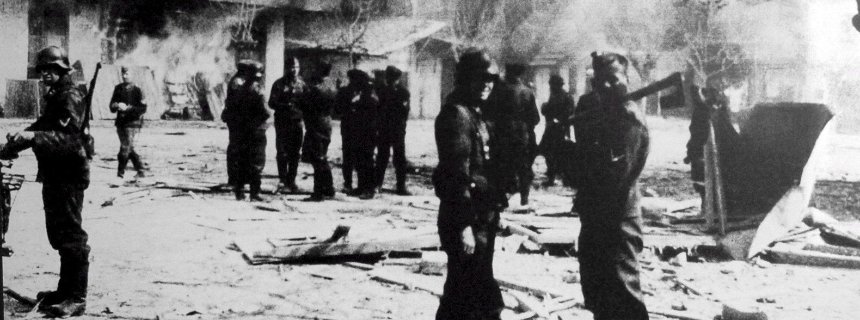Is Germany liable to Athens for loans the Nazis forced the Greek central bank to provide during World War II? A new study in Greece could increase the pressure on Berlin to pay up.
Loukas Zisis, the deputy mayor of Distomo, a village nestled in the hills about a two hour drive from Athens, says he thinks about the Germans every day. On June 10, 1944, the Germans massacred 218 people in Distomo, including dozens of children. Zisis, who is just 48 years old, wasn’t yet born at the time of the attack.
“We can’t forget the Germans,” Zisis says. They came to Distomo 71 years ago with their guns. “Today they are exerting power over our village with their banks and policies,” he adds. He’s standing in the wind on a rocky ledge, a small man in a leather jacket, and looking out over the town. Two-thousand people live here.
The massacre, which continues to shape the place today, was one of the most brutal crimes committed by the Nazis in Greece, with the carnage lasting several hours. For decades, a trial over the massacre wound its way through the courts at all levels in Greece and Germany. Greece’s highest court, the Areopag, ruled in 2000 that Germany must pay damages to Distomo’s bereaved.
“But we are still waiting,” says Zisis. “There has been no compensation.”
Last week in Greek parliament, Greek Prime Minister Alexis Tsipras demanded German reparations payments, indirectly linking them to the current situation in Greece. “After the reunification of Germany in 1990, the legal and political conditions were created for this issue to be solved,” Tsipras said. “But since then, German governments chose silence, legal tricks and delay. And I wonder, because there is a lot of talk at the European level these days about moral issues: Is this stance moral?”

